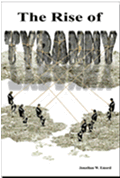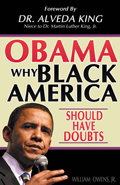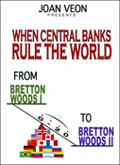By
Marilyn M. Barnewall
April 25, 2010
NewsWithViews.com
One of the things that became very clear to me years ago is the need to more clearly define the words we use. Without clear definitions, we can easily become victims of misinformation or disinformation – or even mis-disinformation. It’s a power game in a complex world.
Last Sunday, I listened to George Will define “moral hazard” on ABC’s morning news show. Friday, I listened to newscasters describe the work time pornography habits of high-paid lawyers and accountants at the Securities and Exchange Commission (SEC) as their secrets were bared (so to speak).
The SEC investigation was conducted at the request of Senator Chuck Grassley (R-Iowa) and found 31 serious offenses during the past 2 ½ years. Of the “alleged” offenders, 17 were senior officers with salaries ranging from $100,000 to $222,000 per year. Since senior officers make hiring decisions, we can all guess at the size of the SEC’s moral hazard.
Mr. Will, trying to define moral hazard, and experts trying to define reasons for such a psychotic abuse of bureaucratic behavior, failed. In an example of a moral hazard, the SEC attorneys and accountants succeeded. Such irony!
George Will says a moral hazard occurs when one entity determines how much risk it can lawfully take while another entity, called “taxpayers” with no power to control the actions of Entity #1, is forced to pay for greed-driven mistakes that result.
Most business writers discussing the new financial institution regulatory control legislation to be voted on tomorrow (Monday) agree with Will. Though technically correct, I disagree with the depth – or lack of it – in the definition.
There is a need for definitional clarity. How many times over the years have I heard Rush Limbaugh say, “Words have meaning”? They do. But how many of us define clearly in our minds the words we use when we speak? So many people ask how we lost our Republic. So few are aware the definitions of words used to protect our Constitution have been totally changed. It’s been a very subtle process and occurred over a long period of time.
In the financial services industry, risk management becomes risk taking when commercial banking (lending) and investment banking comingle. There are severe conflicts of interest built into an organization being both a lender and an investment adviser. When they butt heads, as they must when wedded within the same institution, one of two things happens: 1) Risks are taken; or, 2) Moral compromise that puts the public at risk occurs.
For example, bank loan officers who earn commissions on credits they make which fund investments in another bank department – a “co-mingled” bank – may not make the best possible loan decisions. A personal commission for the lender is at stake, for heaven’s sake!
That defines “moral hazard.” Thus, the only way to avoid moral hazard in the commercial and investment banking worlds is to keep the two apart. The very solutions to bank regulatory problems as proposed by this administration create “moral hazard” rather than remove it. Risk taking poorly defines what is supposed to happen in a capitalist system. The management of acceptable risk defines how capitalism is supposed to function.
“Risk taking” is not something bankers – commercial or investment – are supposed to do beyond certain points of defined reason. Regulations define that point of reason. To be effective, regulations must be enforced – and they are not and have not been for some time. Anyone who has paid attention to the lack of enforcement of investment or commercial bank regulation knows that.
The best way for political hacks to gain new power is to implement new regulations. They create the demand to rewrite regulations by ignoring existing ones. When logical problems result, they sell the public on how ineffective existing regulations are. “We need new regulatory controls!” they shout and the guys already in power – the guys who caused the problems in the first place – gain more of it. No. We don’t need new regulations in the financial services industry. We need existing regulations enforced!
Capitalism needs risk management to function, but risk taking and risk management are very different things. Brokers who sell investment products must, to the degree possible, demand risk be effectively managed by product providers (and brokers should be smart enough to analyze the effectiveness of that process). The SEC is supposed to ensure this process occurs, but they’ve obviously had their hands filled with other business.
Capitalism warns individual investors: “consumer, beware!” That requires investors to determine how well brokers evaluate and remove – manage – investment product risks. Now that we know SEC lawyers and accountants spend eight hours a day looking for and recording porn while putting a disguised form of it into the investment marketplace, the collapse of our financial services marketplace is explained. It is exemplary of how the powers that be execute their responsibilities on behalf of the public: They play, we pay. By all means, let’s give the existing regulators more power!
In the 1980s and 1990s, regulations from the era of the Great Depression were changed – to allow taking rather than managing risk. In 2008, I wrote two articles explaining the history of bank regulatory change and resultant dangers. These articles can be found here.
The new laws that replaced the Glass Steagall Act, the McFadden Act, and Regulation Q, tore down the walls of consumer protection. The above-linked articles explain how. For now, suffice it to say in the 1980s and 90s, regulations began with the Depository Institutions Deregulation and Monetary Control Act.
This Act passed the Congress in 1980. It gave the Federal Reserve more control over non Federal Reserve banks. Hmmm… sounds familiar, doesn’t it? Obama again wants to give the fox (known more commonly as the Federal Reserve System) more power to oversee the existing hen house (regulations).
Under the proposed regulations, the Federal Reserve gains the authority to supervise all firms that could pose threat to financial stability – not just limited to financial institutions. The automotive industry, the airline industry, any major industry can pose a threat to financial stability. The Fed gains expanded authority to oversee payment, clearing and settlement systems and over-the-counter derivative transactions will be regulated in a more transparent way. We all know how much more transparent government has become under Obama. The Federal Reserve System will now have authority over market infrastructure, in other words. And, the Fed’s emergency lending authority will be revised upward for better accountability.
Better accountability? Please! The Federal Reserve System is a private corporation that acts as an unneeded middleman between the people’s money and our Treasury. Owned by banks and bankers (with many foreign investors) who profit from bank losses, the Fed is totally unnecessary. It does nothing the Treasury could not do. Talk about a conflict of interest waiting to happen!
Remember, the Garn-St. Germain Act was passed in the 1980s so the savings and loans industry could be “saved.” Instead, the entire industry failed. The Obama Administration regulatory proposals for commercial and investment banks use a similar strategy: “Give the Fed more power.”
Are we so naïve as to think these two occurrences 30 years apart are accidental? This new legislation holds the key to a system of global banking which will then be eased into world government. All that will be left to do is argue over organization and land. The 100th birthday of the Federal Reserve is 2013. It took them a hundred years to ruin what our forefathers put together. Maybe the demise of our Republic is scheduled as a birthday present?
As a result of Garn-St. Germain the most secure mortgage source for American homebuyers, savings and loans, was destroyed. That made the emergence of Freddie Mac and Fannie Mae possible. I suppose it escaped legislative attention that had the savings and loans not been thrown into bankruptcy because of Garn-St. Germain, it would still be making mortgage loans and Freddie and Fannie would not be catalysts in bringing down the financial services industry today. By the way, Freddie and Fannie – the root cause of bad derivatives created from junk mortgages – are in no way regulated by Obama’s new legislation.
Until the Gramm-Leach-Bliley Act of 1999, commercial banks made business and consumer loans and issued credit cards. They provided a variety of checking and savings accounts and other services to fill client needs. Commercial banks could not sell investment or insurance products and investment banks could not take deposits or make loans – thanks to Glass Steagall. To get rid of the concept of “too big to fail,” we need to return to Glass Steagall. This, of course, would force the too big guys to become substantially smaller – and, thus, much less likely to fail. Oh, my! There go the giant bonuses!
| Subscribe to the NewsWithViews Daily News Alerts! |
To comply with Glass Steagall would force commercial and investment banks to stop comingling the risk management of commercial bank credit with Wall Street investment risk.
We have the SEC, porn, sleaze, corruption, and soap opera drama. The saddest part is that the public will buy and run with this disaster.
As they say, the public generally deserves the government it gets.
� 2010 Marilyn M. Barnewall - All Rights Reserved
Sign Up For Free E-Mail Alerts
Marilyn MacGruder Barnewall began her career in 1956 as a journalist with the Wyoming Eagle in Cheyenne. During her 20 years (plus) as a banker and bank consultant, she wrote extensively for The American Banker, Bank Marketing Magazine, Trust Marketing Magazine, and other major industry publications. The American Bankers Association published Barnewall’s Profitable Private Banking, the first book written about private banks, in 1987. She taught private banking at Colorado University for the American Bankers Association and trained private bankers in Singapore in 1991. She has authored seven banking books, one dog book, and one work of fiction (about banking, of course). She has served on numerous Boards in her community.
Barnewall received her degree in Banking from the University of Colorado Graduate School of Business in 1978 and was named one of America's top 100 businesswomen. She was a founding member of the Committee of 200, the official organization of America's top businesswomen. She can be found in Who's:Who in America (2005-08), Who's Who of American Women (2006-08), Who's Who in Finance and Business (2006-08), and Who's Who in the World (2008).
Web site:
E-Mail: marilynmacg@juno.com
















